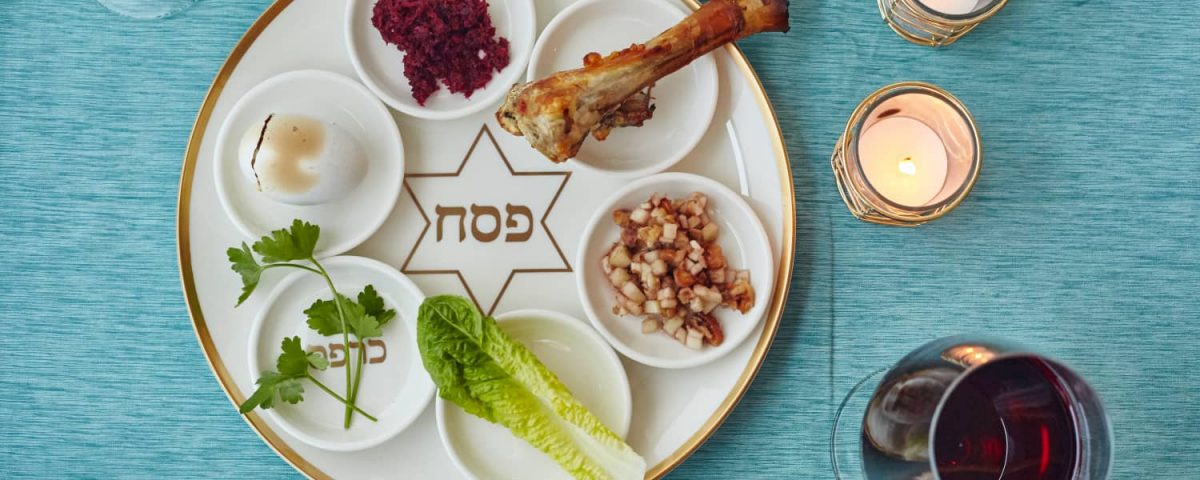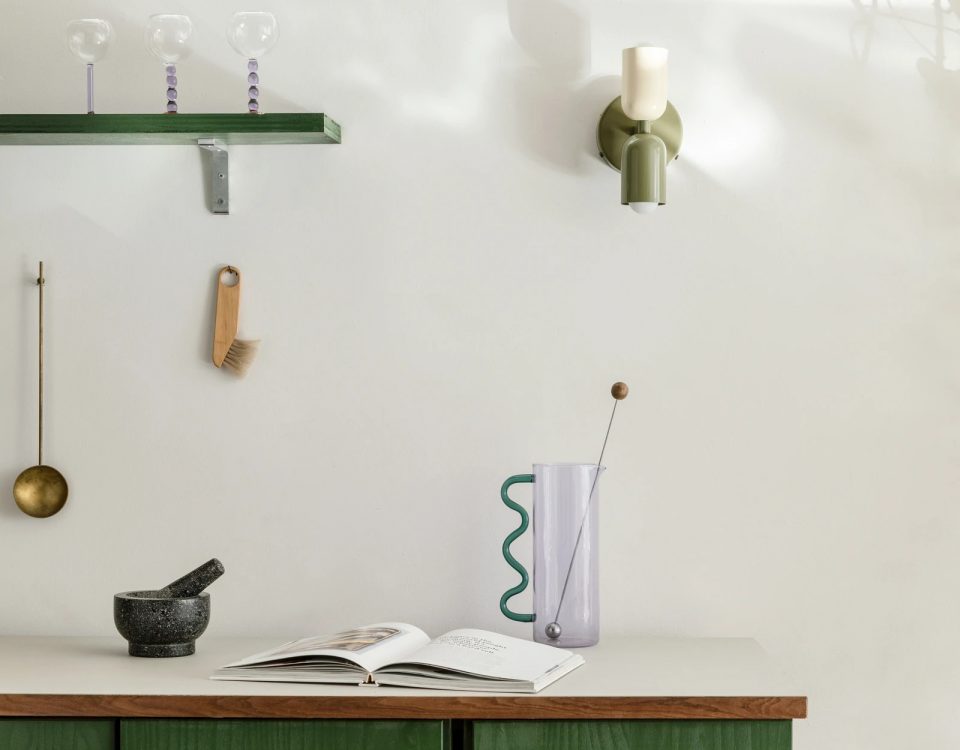- Privacy On Demand
- 020 8150 0080
- 0845 3886618
- info@priviglaze.com

Amanda Seyfried Lists $3.25 Million Condo, a Historic Lloyd Wright Lair Hits the Market, and Other Real Estate News
13 April 2022
Inside a Chic Summer Getaway Along the Basque Coastline of France
13 April 2022How I Get Ready For Passover in My Kosher Kitchen

[ad_1]
Passover is one of the most important Jewish holidays. And while it can be a lot of fun, it can also be a lot of work, depending on how strictly you “keep” Passover. Keeping Passover involves abstaining from eating anything leavened, known as “chametz,” for one week. This commemorates the time it took the Israelite slaves to escape Egypt, a period in which they only had unleavened bread (aka matzah) to eat because they did not have time to wait for their bread to rise in the rush to flee. In practice, chametz refers to any food containing wheat, barley, rye, oats or spelt (other than matzah, of course). So during the week of Passover, most Jewish people don’t eat any foods that contain these ingredients.
In more observant families, the lead-up to Passover involves what amounts to a spring cleaning on steroids. This is because more observant Jews not only don’t eat chametz during Passover, they don’t want any chametz in their house, nor do they want anything in their home that could potentially have been “contaminated” with chametz. For example, if there’s even a chance some flour, which is chametz, got into a slightly-ajar box of raisins on your baking shelf, the raisins are now also considered chametz since you wouldn’t be able to see the flour if something like that were to happen. You’d then have to treat the raisins and anything else that might’ve been open as though it’s potentially contaminated. Sound potentially wasteful and overwhelming? It can be!
My family observes Passover this way, and we will do a thorough cleaning of our house (especially the kitchen, which has to follow strict pre-Passover prep rules) before the holiday, as well as doing things like sealing up any open boxes of cereal, pasta, potentially-contaminated raisins, etc. with tape and putting them out in the garage. This helps prevent that waste and keep everything organized.
So yes, as you might be able to imagine, getting ready for Passover is a lot of work. But in the ten years since I moved in with my husband and have “kept” Passover to this degree, I have learned a few pro tricks. Here are some of the ways we help make Passover prep slightly less overwhelming.
Set a cut-off date for eating outside the kitchen
Who among us isn’t guilty of shoveling a sandwich in our face at our desk, or bringing a cereal midnight snack to bed? There’s nothing wrong with this most of the year, but we usually pick a day a week or so before Passover where we become really strict about only eating in the kitchen. (Generally, it’s right after we’ve cleaned that room). This way we know there won’t be any rogue crumbs in any additional rooms to worry about in the crunch time right before the holiday, and we can focus our cleaning efforts on the kitchen itself.
Use up as many groceries as possible (hello, weird meals)
Because we seal up and store any non-perishable goods that are open, in an ideal world you don’t have a lot of open containers of food before the holiday starts. So if I notice we have, say, just a little bit of mustard and an open package of frozen hamburger buns in early March, I’ll make sure we get a burger night in before the holiday so we can use up the mustard and the buns before Passover. This is also a great time for experimenting. Cereal stash running low? Pour a little bit of every kind of cereal we have into one bowl and eat it! We have an open bag of BBQ chips and a half-eaten container of hummus? That’s a snack plate! (And on the flip side, if we run out of, say, flour a few weeks before Passover, I’ll try and see if we can make it until after Passover without buying more. There’s a lot of strategy involved.)
One of the splurges we do every year is making sure we hire a cleaning service as close to the holiday as we can. While a regular house cleaning doesn’t replace some of the rituals we have to do to get our kitchen ready for the holiday (for example, some cleaning services won’t know we have to pour boiling water on our stainless steel sink to have it considered Kosher for Passover!), it does cut down on the hunting-for-crumbs thing you’re supposed to do. This year, Passover starts on April 15 and we will have someone clean our house that morning. That way we’ll know everything’s been vacuumed and scrubbed before sundown, when Passover begins!
I have two young kids, and when you take away pasta and bread and crackers, it can be tough to find meals that please the whole family during Passover. But I’ve found the more I plan it out, the easier it is. Normally I meal plan on Sunday nights for the week ahead, mapping out dinners for everyone and lunches for the kids. But before Passover I’ll start two weeks in advance, and I’ll have a rough idea of breakfasts, lunches, dinners and snacks for the whole week. Not only does this cut down on the expense of the holiday by helping to ensure I’m only buying stuff I know we’ll use, it also is kind of necessary. During Passover, we can’t decide to get takeout if we don’t have time to cook, because many restaurant kitchens are not Kosher for Passover. So having a good, solid plan for Passover is important!
Embrace disposable cookware
Normally I try to be as eco-friendly as I can — I love a reusable silicone food storage bag or a metal straw. But during Passover, I give myself a little leeway. Once I make my meal plan, I get as much disposable cookware as I think I’ll need. This is helpful because I make different foods every year, and don’t want to buy and store a cookie sheet that already can only be used one week a year to make almond flour chocolate chip cookies, when I would need a second one if I wanted to roast chicken thighs later in the week. Another consideration is that all Passover dishes have to be cleaned and put away for next year before we bring our chametz back inside and start eating regularly again, otherwise they’d risk the dreaded “contamination.” So if at the end of the week we have brisket leftovers in a Passover storage container in the fridge, but we want to eat them after Passover ends and our chametz is back in the house, the container would no longer be considered Kosher for Passover. Thus, I’ve switched to using disposable food storage, so that we can keep the brisket until we feel like eating it, and dispose of the container when the food is gone. I know it’s not the best, but it’s just once a year, and it’s important for the holiday.
Make sure you’ve reached out to anyone coming over during Passover
When I have people over during Passover, I make sure they know far in advance what the deal around food in our home is. They shouldn’t bring any food into my house if they’re not as strict or stricter than we are. If you’ve been invited to someone’s house and don’t know what to bring? Flowers. Always bring flowers. They are always Kosher!
Stay organized for next year
One of the most bizarre parts of Passover is unpacking your dishes right before the holiday starts and realizing you don’t have a carving knife for the roast chicken you were planning to make, or forgetting that one of your coffee mugs broke last year and now you only have three. Before packing everything away, I try to take photos of all my stuff and put it in an album on my phone labeled “Passover” so I can quickly consult and see what I have when the holiday rolls around again. This trick also works well with any food we might be freezing for the next year! After all, it feels like just when we’ve finished with Passover, it’s time to to start prepping again.
[ad_2]
Source link

